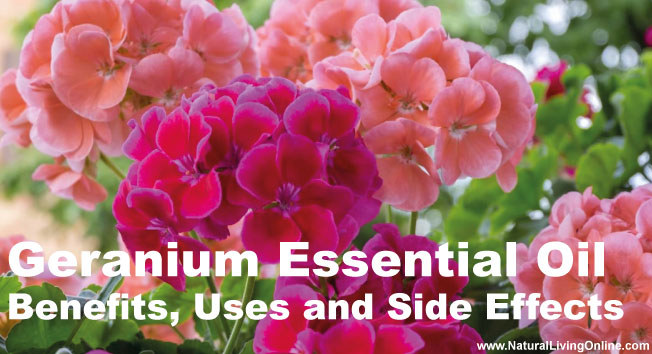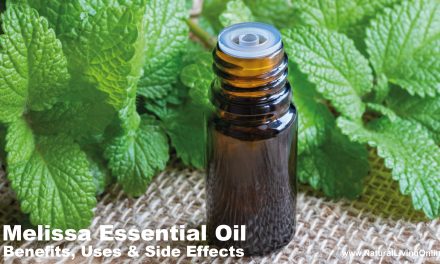If you’re looking for an essential oil that has a wide range of benefits and uses, look no further than geranium oil. This powerful oil has been used for centuries to treat a variety of health issues. It’s also known for its pleasant aroma, which can be enjoyed in aromatherapy sessions or simply by diffusing the oil in your home. In this guide, we will discuss the many benefits of geranium oil, as well as its possible side effects. We’ll also provide some tips on how to use this versatile oil safely and effectively.
What is Geranium?
Geranium is a flowering plant that belongs to the genus Pelargonium. There are over 200 species of geranium, which are native to Africa, Australia, and the Mediterranean region. Geranium oil is extracted from the leaves and stems of the plant. It’s been used for centuries in folk medicine and aromatherapy.
How many different types of Geranium essential oils are there?
There are three main types of geranium oil: pelargonium graveolens (Geraniaceae), rose-scented geranium (Pelargonium roseum), and citronella geranium (Pelargonium crispum). Each type has its own unique aroma and benefits.
How Geranium essential oil is made?
Geranium oil is extracted from the leaves and stems of the plant using steam distillation. This process preserves the delicate compounds in the oil, which are responsible for its therapeutic properties.
What is the botanical name of Geranium?
The botanical name for geranium is Pelargonium graveolens.
What is the chemical composition of Geranium essential oil?
Geranium essential oil contains a number of different compounds, including linalool, geraniol, citronellol, and limonene. These compounds give the oil its unique aroma and therapeutic benefits.
What are the benefits of using Geranium essential oil?
Geranium essential oil has a wide range of benefits. It’s been shown to improve skin health, reduce inflammation, relieve stress and anxiety, and boost mood. Additionally, geranium oil has antibacterial, antifungal, and insecticidal properties. Here are some of the most well-known benefits of geranium essential oil:
improves skin health
reduces inflammation
relieves stress and anxiety
boosts mood
antibacterial, antifungal, and insecticidal properties.
Geranium essential oil is a popular choice for those looking for an all-natural solution to their skincare needs. The oil has been shown to improve skin elasticity, reduce wrinkles, and even help heal scars. Additionally, geranium oil can help balance the production of sebum, making it an ideal choice for those with oily or combination skin. If you’re looking for an essential oil that can do it all, look no further than geranium essential oil!
As we age, our skin starts to show the effects of sun damage, pollution, and other environmental factors. Geranium oil can help reduce the appearance of wrinkles and fine lines by stimulating collagen production. Additionally, the oil is full of antioxidants that can help protect the skin from further damage.
Applied topically, the essential oil may have antibacterial and antifungal activity and has been used for neuropathic pain
National Library of Medicine
If you’re looking for an essential oil that can improve your skin health, geranium essential oil is a great choice! The oil has been shown to improve skin elasticity, reduce wrinkles, and even help heal scars. Additionally, geranium oil can help balance the production of sebum, making it an ideal choice for those with oily or combination skin. If you’re looking for an all-natural solution to your skincare needs, look no further than geranium essential oil!
Not only is geranium oil great for your skin, but it can also help reduce inflammation throughout the body. The oil has been shown to help relieve pain and swelling associated with conditions like arthritis and menstrual cramps. Additionally, geranium oil can help improve circulation and promote healing. If you’re looking for an essential oil that can do it all, look no further than geranium essential oil!
Geranium essential oil is also known for its ability to relieve stress and anxiety. The sweet, floral scent of the oil is known to promote relaxation and calm the mind. If you’re looking for an essential oil that can help you relax and de-stress, look no further than geranium essential oil.
In addition to its many benefits, geranium essential oil also has a pleasant, sweet scent that can boost your mood. The oil is often used in aromatherapy to help improve mood and promote relaxation. If you’re looking for an essential oil that can improve your mood and promote relaxation, look no further than geranium essential oil.
What are ways to use Geranium essential oil?
Geranium essential oil can be used in many different ways. It can be used to support the health of your skin, hair, and nails. Geranium oil can also be used to help reduce stress and anxiety. Here are some of the most popular ways to use Geranium essential oil:
-Add a few drops of Geranium essential oil to your favorite lotion or cream and apply it to your skin.
-Diffuse Geranium essential oil throughout your home or office to create a calming atmosphere.
-Mix Geranium essential oil with water in a spray bottle and use it as a natural air freshener.
-Add a few drops of Geranium essential oil to your bathtub for a relaxing and rejuvenating experience.
-Make your own DIY cleaning products by adding Geranium essential oil to vinegar, water, and baking soda.
As you can see, there are many ways to use Geranium essential oil. So go ahead and experiment with this versatile oil and see what works best for you!
How Geranium essential oil has been used historically?
Geranium essential oil has been used for centuries in folk medicine and aromatherapy. It was traditionally used to treat wounds and skin infections. Today, it’s still used for these purposes, as well as to relieve stress and anxiety, boost mood, and improve skin health.
What does blend well with Geranium essential oil?
Geranium oil blends well with other floral and citrus oils, such as lavender essential oil, rose oil, lemon oil, and orange oil.
What does not blend well with Geranium essential oil?
Geranium oil should not be blended with mint oils or other strong-smelling oils.
What are the side effects of using Geranium essential oil?
Geranium essential is generally safe for most people when used properly. However, it can cause skin irritation in some people. If you experience any adverse reactions after using geranium oil, discontinue use and consult your doctor.
What does Geranium essential oil smell like?
Geranium essential oil has a sweet, floral aroma with fruity undertones.
How do I make Geranium Essential Oil at home?
You can make geranium essential oil at home by steeping the leaves and stems of the plant in a carrier oil, such as jojoba oil or coconut oil. Once the mixture has steeped for several weeks, strain it and store the resulting oil in a dark glass bottle.
What is the shelf life of Geranium essential oil?
Geranium essential oil has a shelf life of two to three years.
Is Geranium Essential Oil safe for children?
Geranium Essential Oil is safe for children when used properly.
Is Geranium Essential Oil safe for pets?
Geranium Essential Oil is safe for pets when used properly. Consult your veterinarian before using any essential oils on your pet.
I hope this guide was helpful in understanding more about Geranium essential oil! If you have any questions, please leave them in the comments below and I’ll do my best to answer them.
This website does not provide medical advice.
All information provided on this website, and on associated social media networks, including but not limited to texts, images, and numbers are for general information purpose only. It is not intended as medical advice and it does not include all possible precautions, side effects, or interactions that may occur. Neither NaturalLivingOnline.com nor its author/founder take responsibility for how you use this information. Statements contained on NaturalLivingOnline.com have not been evaluated by the FDA. You should conduct thorough research via multiple sources and consult your physician or qualified doctor before using any essential oil or herbal remedy. Information on NaturalLivingOnline.com must not be relied upon for medical, legal, financial or other decisions.













